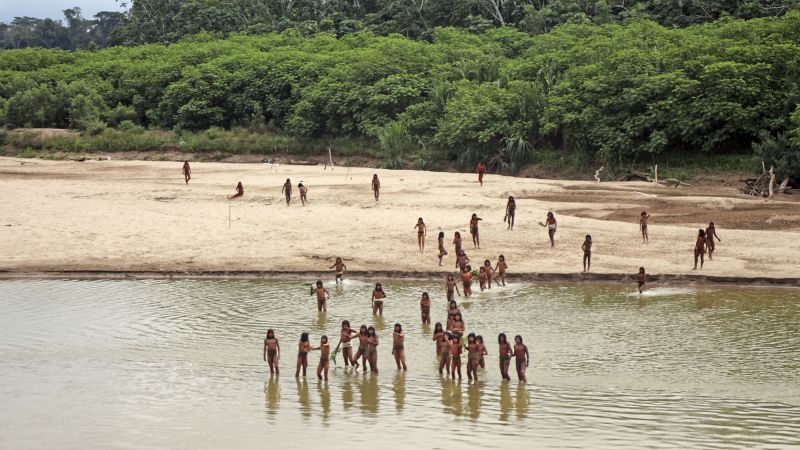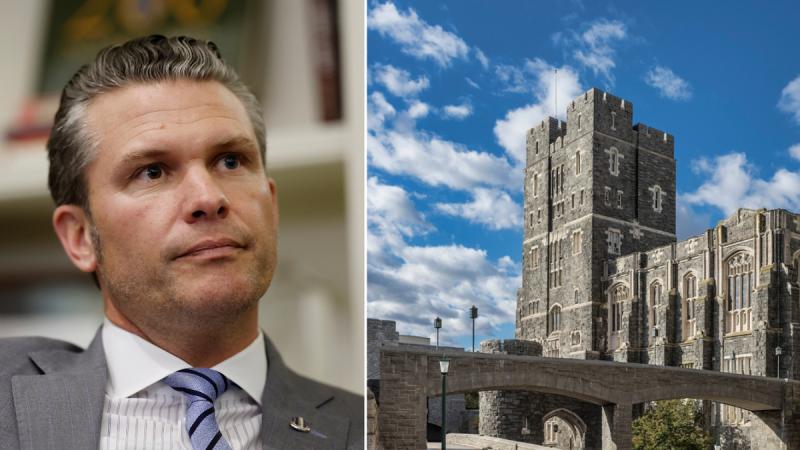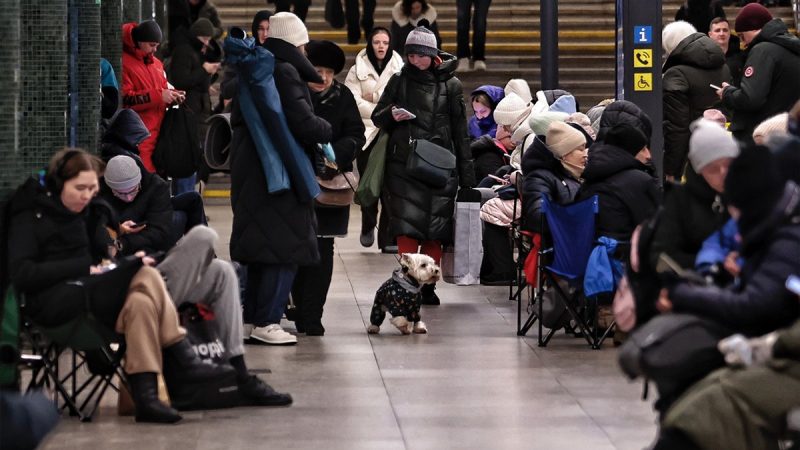September 5, 2024
Deadly Encounter: Remote Indigenous Tribe Defends Land in Peru, Killing Two Loggers
 The recent conflict between a remote Indigenous tribe in Peru and loggers encroaching on their land has once again highlighted the ongoing struggle faced by Indigenous communities around the world to protect their territories and way of life. In a tragic turn of events, two loggers were reportedly killed by members of the tribe in retaliation for the illegal logging activities taking place in their ancestral lands.
It is a stark reminder of the consequences of exploitation and colonization that continue to threaten the existence of Indigenous communities globally. The case in Peru is just one example of the many conflicts that arise when powerful interests clash with the rights and traditions of Indigenous peoples.
The remote location of these tribes often makes them vulnerable to outside threats, as they lack the resources and access to legal protection that could help safeguard their territory. In many cases, logging companies and other extractive industries operate with little regard for the rights of Indigenous communities, leading to the destruction of forests, water sources, and traditional knowledge.
The use of violence by the tribe in response to the encroachment on their land is a desperate plea for recognition and protection. It underscores the importance of respecting the rights of Indigenous peoples and their sovereignty over their territories. The legal framework that should protect Indigenous land rights is often inadequate or poorly enforced, leaving these communities at the mercy of powerful interests.
Efforts to address these issues must prioritize the rights and autonomy of Indigenous communities. This includes upholding their right to free, prior, and informed consent in matters that affect their land and resources. Governments and corporations must engage in meaningful dialogue with Indigenous representatives to find mutually beneficial solutions that respect their rights and protect the environment.
Furthermore, international solidarity and pressure are crucial in holding governments and corporations accountable for their actions. The global community must support the struggles of Indigenous communities in defending their land and way of life, recognizing that their fight is not just for themselves but for the protection of the planet as a whole.
In conclusion, the recent clash between a remote Indigenous tribe in Peru and loggers highlights the urgent need for greater respect and protection of Indigenous land rights. The violence that erupted in this case is a tragic consequence of the ongoing exploitation and marginalization faced by Indigenous communities worldwide. It is a call to action for all stakeholders to work towards a more just and sustainable future, in which the rights and sovereignty of Indigenous peoples are upheld and respected.
The recent conflict between a remote Indigenous tribe in Peru and loggers encroaching on their land has once again highlighted the ongoing struggle faced by Indigenous communities around the world to protect their territories and way of life. In a tragic turn of events, two loggers were reportedly killed by members of the tribe in retaliation for the illegal logging activities taking place in their ancestral lands.
It is a stark reminder of the consequences of exploitation and colonization that continue to threaten the existence of Indigenous communities globally. The case in Peru is just one example of the many conflicts that arise when powerful interests clash with the rights and traditions of Indigenous peoples.
The remote location of these tribes often makes them vulnerable to outside threats, as they lack the resources and access to legal protection that could help safeguard their territory. In many cases, logging companies and other extractive industries operate with little regard for the rights of Indigenous communities, leading to the destruction of forests, water sources, and traditional knowledge.
The use of violence by the tribe in response to the encroachment on their land is a desperate plea for recognition and protection. It underscores the importance of respecting the rights of Indigenous peoples and their sovereignty over their territories. The legal framework that should protect Indigenous land rights is often inadequate or poorly enforced, leaving these communities at the mercy of powerful interests.
Efforts to address these issues must prioritize the rights and autonomy of Indigenous communities. This includes upholding their right to free, prior, and informed consent in matters that affect their land and resources. Governments and corporations must engage in meaningful dialogue with Indigenous representatives to find mutually beneficial solutions that respect their rights and protect the environment.
Furthermore, international solidarity and pressure are crucial in holding governments and corporations accountable for their actions. The global community must support the struggles of Indigenous communities in defending their land and way of life, recognizing that their fight is not just for themselves but for the protection of the planet as a whole.
In conclusion, the recent clash between a remote Indigenous tribe in Peru and loggers highlights the urgent need for greater respect and protection of Indigenous land rights. The violence that erupted in this case is a tragic consequence of the ongoing exploitation and marginalization faced by Indigenous communities worldwide. It is a call to action for all stakeholders to work towards a more just and sustainable future, in which the rights and sovereignty of Indigenous peoples are upheld and respected.
If you would like to delve into the world of investment topics , go to our partner project Wall Street Wizardry


